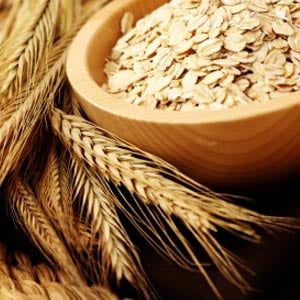
Thiamine, like all the other B-complex vitamins and vitamin C, is a water-soluble vitamin. The B-complex vitamins are grouped together because of their similar physical properties and their presence in similar food sources.
Because of the close inter-relationship between the B-complex vitamins, it is important to note that the inadequate intake of one of the vitamins can result in the impaired utilisation of the others.
Very little thiamine is stored in the body. The body's stores can become depleted within 14 days.
Thiamine, which is usually expressed in milligrams, should also be taken in combination with folate and manganese for effective utilisation by the body.
What does vitamin B1 do for you?
The vitamin is active in the
form of thiamine pyrophosphate, a coenzyme involved in the process of
carbohydrate metabolism. A coenzyme is a compound that plays an
important role in the function of an enzyme, helping the enzyme to
catalyse specific reactions in the body's cells.
Thiamine pyrophosphate plays a key role in the Krebs cycle – a
complex process that takes place in the cells and generates energy in
the form of ATP and carbon dioxide. The cycle is the final step in the
oxidation of protein, carbohydrate and fat.
Which foods have vitamin B1?
Although thiamine is present in a wide range of foods, most sources contain only a small amount of the essential vitamin.
Although yeast and yeast extract, such as Marmite, and liver are the best sources, most people get their daily dose of thiamine through grain products. Wholewheat and other unrefined grain products contain higher amounts of thiamine than refined foods do.
Peas, potatoes, oranges, egg yolk and most fortified breakfast cereal are also significant sources of thiamine.
Thiamine is a relatively sensitive vitamin and is easily destroyed by cooking. The vitamin can, however, withstand frozen storage. Cooking loss depends on cooking time, temperature and the amount of water used. Rather poach or steam food, than cook it in water on the stove.
Certain enzymes present in fish and shellfish can destroy thiamine.
How much vitamin B1 do you need?
The current recommended dietary allowance/adequate intake (RDA/AI) is 1.2mg for adult males and 1.1mg per day for adult females.
Breastfeeding women need 1.5mg of vitamin B1 per day.
How much is too much vitamin B1?
Although excess water-soluble
vitamins are excreted through the urine, taking massive doses can be
toxic. A 100 times more than the recommended doses have toxic potential.
This can result in the suppression of the respiratory system, which can
lead to insomnia, general weakness, rapid pulse, headaches and
irritability. In extreme cases, an overdose can be fatal.
Too much B1 can also deplete the body of other B vitamins.
Signs of vitamin B1 deficiency
Insufficient dietary intake of
thiamine can lead to deficiency. Certain other factors, like excessive
alcohol intake and folic acid deficiency, can interfere with thiamine
absorption and also result in deficiency.
The most important manifestations of deficiency are weight loss, as well as problems with the heart and nervous system.
Deficiency can result in a condition known as beriberi. The disease is common in the developing world where rice is the major staple food and people consume raw fish (certain enzymes present in fish and shellfish can destroy thiamine).
Early symptoms of deficiency include fatigue, irritation, poor memory, sleep disturbances, pain in the chest, loss of appetite, abdominal discomfort and constipation.
Later, the disease presents itself in one of two forms: "dry" or "wet" beriberi.
Dry beriberi results in pins and needles in the toes, burning of the feet, calf muscle cramps and pains in the legs.
Beriberi involving the brain (Wernicke-Korsakoff syndrome) results when short-term severe deficiency is superimposed on chronic deficiency. The early stage is called Korsakoff syndrome, the signs of which range from mild confusion to coma.
Wernicke’s encephalopathy is the second part of the syndrome and results when beriberi involving the brain is not treated. Blood flow to the brain is decreased and coma and eventually death result.
Cardiovascular beriberi (wet beriberi) takes two forms. In the first form the person experiences a fast heart beat, sweating and the skin is warm. As the disease progresses, heart failure occurs.
The second form is called Shoshin disease and is very rare. In
this case the onset of symptoms is sudden and overwhelming, and death
through total cardiovascular collapse may occur in days or even hours.
New research on vitamin B1
Taking vitamin B1 supplements may
prevent or slow the onset of Alzheimer’s disease. It’s been shown to
help those suffering from other diseases of the nervous system, such as
multiple sclerosis, depression, anxiety disorders and neuritis.
Preliminary studies in animals have indicated that a special form of vitamin B1 prevents the kind of nerve damage common in people with diabetes. This damage can lead to blindness, kidney failure and heart attacks in diabetics. The drug is called benfotiamine.




 Publications
Publications
 Partners
Partners













